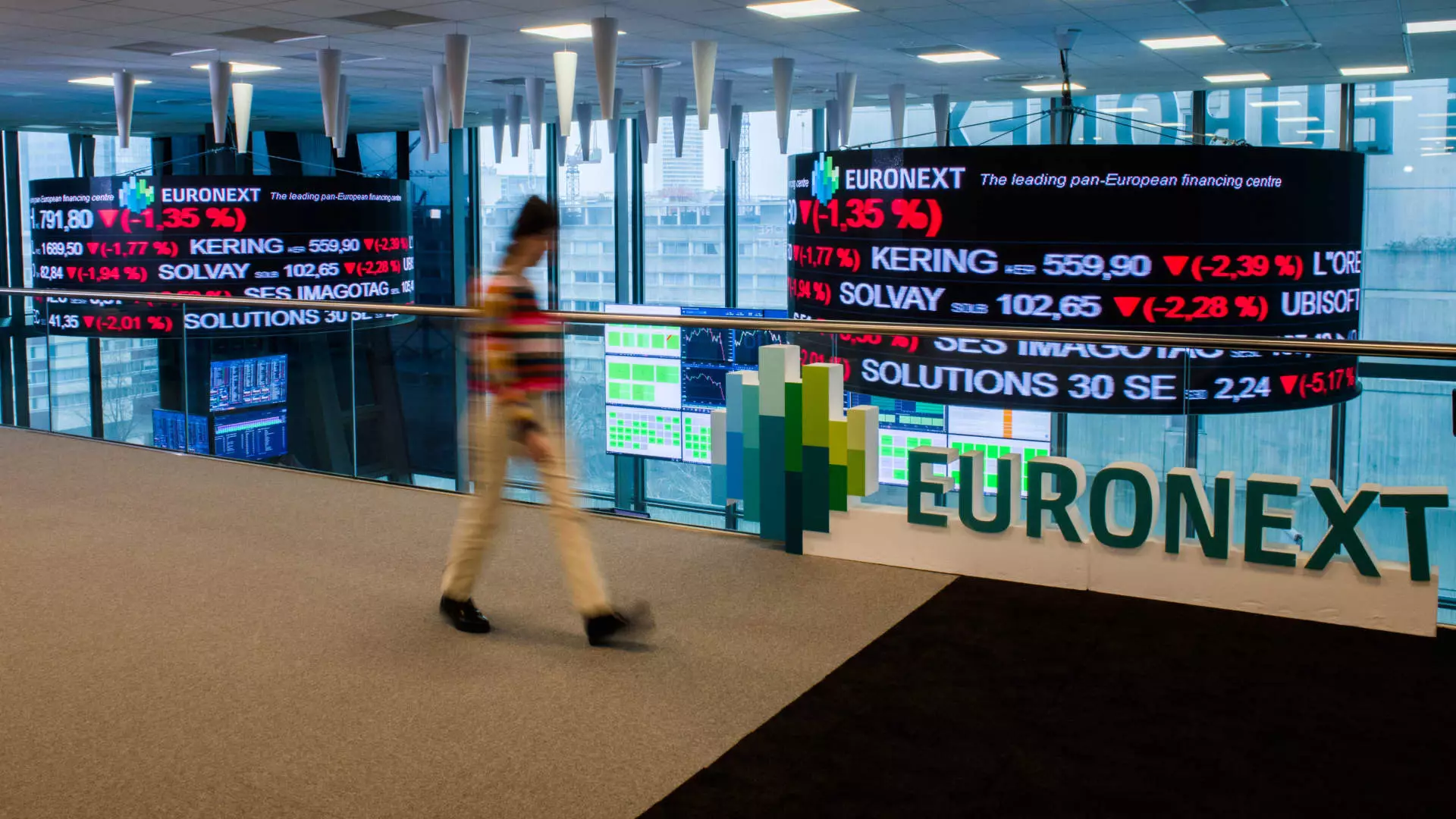The recent political developments in the United States have reverberated across global markets, highlighting the interconnectedness of economic policies and international trading dynamics. Following Donald Trump’s electoral victory, U.S.-listed exchange-traded funds (ETFs) that monitor global stocks experienced notable declines. This downturn raises questions about the implications of domestic policy choices on international equity markets, especially as investors reassess the risk environment.
Notably, ETFs such as those from iShares that focus on regions like South Korea, Hong Kong, Taiwan, and Chile fell sharply on a day when major U.S. indexes surged to new heights. The paradox of rising domestic indices coupled with plummeting international funds underscores a critical divergence: while U.S. investors may be buoyed by the prospect of pro-business policies, international markets appear increasingly vulnerable to the anticipated fallout from such strategies. Investors reacted cautiously to Trump’s proposals on tariffs, especially fears surrounding a potential 20% tax on imports and a bias against Chinese goods that could see tariffs hitting a staggering 60%.
The implications of these policies are significant, specifically regarding trade relationships and international supply chains. Yung-Yu Ma of BMO Wealth Management articulated this sentiment, suggesting that uncertainty surrounding tariff implementations would impose constraints on the potential upside of global stocks in the near future.
As Trump’s victory was confirmed, European markets faced immediate pressure, leading to a noticeable drop in the iShares Core MSCI Europe ETF. The pronounced reaction in Europe juxtaposes with the more resilient performance of some Asian markets, exemplified by the Nikkei 225 in Japan, which defied the declining trend. Nonetheless, the broader context reveals that the iShares MSCI China ETF suffered a more than 2% decline, reflecting anxiety over Trump’s hawkish trade stance towards China.
Intriguingly, the Global X MSCI Argentina ETF emerged as an outlier, climbing over 2% to reach new heights. This surge is noteworthy given Argentina’s recent electoral shift towards libertarian leadership, drawing parallels between the political strategies of Trump and Javier Milei.
An accompanying outcome of these political shifts is the rise of the U.S. dollar, which reached levels not seen since July. Analysts at LPL Financial, including chief technical strategist Adam Turnquist, attribute this dollar strength partly to increased inflation expectations post-election. A stronger dollar can complicate matters for international stocks, particularly those in emerging markets, which have consistently lagged behind their U.S. counterparts in recent years.
The iShares MSCI Emerging Markets ETF’s decline of over 1% on the same day illustrates this struggle, raising concerns about the long-term implications of currency dynamics on global equity performance.
In sum, the financial fallout from Donald Trump’s electoral victory underscores a complex landscape for global investors. As U.S. markets bask in the glow of potential economic reforms, the ripple effects are felt acutely abroad, with international stocks grappling with the unpredictable nature of American trade policy. Moving forward, investors must navigate this uncertain terrain with a keen eye on geopolitical developments and their potential to reshape the world market dynamics.

